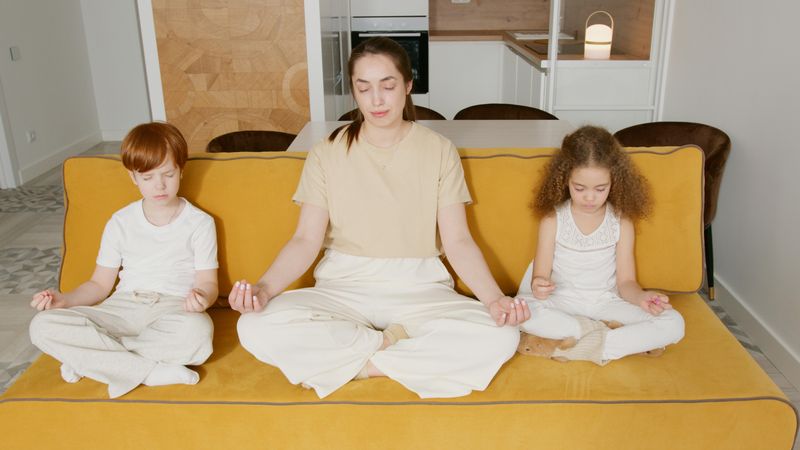13 Honest Reasons People Distance Themselves From Their Families as They Mature

Growing apart from family isn’t always dramatic – sometimes it’s a quiet, gradual process that happens as we become adults. While society often emphasizes family bonds as unbreakable, the reality is more complex. Many people find themselves creating space from relatives for very valid reasons as they navigate adulthood and discover who they truly are.
1. Building Their Own Identity

Adulthood brings a natural desire to discover who you are beyond the labels family gave you growing up. Many people need space to explore their authentic selves, trying on new beliefs, interests, and perspectives that might clash with family expectations.
This journey of self-discovery often requires stepping back from the loud voices of relatives who see you only as you’ve always been. The distance isn’t about rejection but about creating room to grow.
When someone has always been “the responsible one” or “the troublemaker” at home, breaking free to define themselves on their own terms becomes essential for genuine personal growth.
2. Conflicting Values

Family gatherings turn tense when core values clash. Someone who’s embraced progressive politics might struggle to sit through dinner with relatives who mock their beliefs. A person who’s left their childhood religion faces painful conversations with family members convinced they’re making a terrible mistake.
These differences cut deeper than simple disagreements – they touch our fundamental understanding of right and wrong. When families can’t practice respectful disagreement, the constant judgment becomes unbearable.
Many adults choose breathing room rather than repeatedly defending their life choices, sexual orientation, political views, or spiritual path to people unwilling to understand.
3. Childhood Trauma

Some family relationships carry the heavy weight of past harm that’s never been properly addressed. Adults who experienced neglect, abuse, or witnessed violence often find that maintaining close family ties reopens old wounds.
The parent who refuses to acknowledge past mistakes or the siblings who minimize what happened make healing nearly impossible. Distance becomes a necessary shield against continued hurt.
Many people discover through therapy that their anxiety, depression, or relationship struggles connect directly to family dynamics. Creating space becomes part of breaking unhealthy patterns that have followed them since childhood.
4. Feeling Unheard

The conversation always circles back to mom’s problems. Dad interrupts before you finish a thought. Your feelings are dismissed as “being too sensitive” whenever you express hurt. This pattern of invalidation creates invisible walls between family members.
Years of having emotions brushed aside or opinions ignored leave deep marks. People naturally drift away from relationships where they consistently feel unimportant.
Adults who grew up with parents who never truly listened often realize they’ve been maintaining one-sided relationships. The emotional labor of constantly reaching out without reciprocation eventually becomes too draining to sustain.
5. Toxic Relationships

Family ties don’t automatically guarantee healthy connections. The mother who criticizes every achievement, the father who manipulates through guilt, or the sibling who spreads hurtful gossip – these relationships can poison someone’s wellbeing.
Many adults realize that behavior they’d never tolerate from friends has been normalized within their family. The constant walking on eggshells, emotional manipulation, or subtle put-downs create a stress response that affects physical and mental health.
Creating distance isn’t about holding grudges but about recognizing when a relationship consistently brings pain rather than support. Sometimes loving from afar is the healthiest option available.
6. Emotional Exhaustion

Family drama has a way of consuming everything in its path. The constant conflicts, crisis calls at midnight, and being pulled into others’ problems can leave someone completely drained.
Many adults find themselves in the designated “fixer” role, expected to solve every family issue while neglecting their own needs. The weight of carrying everyone else’s emotional baggage becomes unsustainable.
Stepping back often happens when someone realizes they’ve been sacrificing their own mental health, relationships, and goals to maintain a family system that takes more than it gives. The distance becomes necessary for simple self-preservation.
7. Life Changes

Marriage brings a new primary relationship. Having children creates immediate family demands. Career advancement might require moving across the country or working long hours. These natural life developments shift where time and energy flow.
The weekly family dinners that once seemed non-negotiable now compete with a child’s soccer practice or a spouse’s family commitments. Geographic distance makes casual drop-ins impossible, replacing them with scheduled visits.
Many adults find their connection to family naturally evolving as new relationships and responsibilities take center stage. The shift isn’t about rejection but about the natural reshuffling of priorities that comes with building an adult life.
8. Genuine Independence

Family systems often resist when members seek true autonomy. Parents who demand detailed updates on adult children’s lives or relatives who question every decision create friction against natural independence.
The journey to adulthood includes making choices without family approval. Moving to a new city, choosing an unconventional career, or making financial decisions that family disagrees with can trigger tension.
Many people discover that maintaining healthy boundaries requires physical or emotional distance. The space isn’t about rejection but about claiming the freedom to navigate life according to personal values rather than family expectations.
9. Boundaries Crossed

Some families treat boundaries like suggestions rather than requirements. The mother who shows up unannounced despite being asked not to. The relatives who share private information on social media after being told it’s confidential. The family members who push unwanted advice into every conversation.
After years of having limits ignored, many adults realize words alone aren’t working. Creating physical or emotional distance becomes the only effective boundary when repeated conversations have failed.
This pattern is especially common with parents who struggle to see their adult children as autonomous individuals with the right to set their own rules for engagement.
10. Personality Differences

Shared DNA doesn’t guarantee compatible personalities. The introvert dreads the loud family gatherings his extroverted relatives love. The practical, no-nonsense sister struggles to connect with her dreamer brother who seems to live in a different reality.
These fundamental differences in how people experience and navigate the world often become more pronounced with age. What once seemed like minor quirks now feel like unbridgeable gaps in understanding each other.
Many adults find themselves maintaining polite but distant relationships with family members they simply don’t click with. The effort required to connect across such different wavelengths eventually feels forced rather than fulfilling.
11. Life Expectations

Loaded questions like “When are you getting married?”, “Why don’t you want children?”, or “You should be further along in your career by now” reveal expectations that can suffocate authentic choices.
Family pressure to follow traditional timelines or specific life paths creates tension when someone chooses differently. The aspiring artist often feels it most when parents push them toward “practical” careers.
The child-free adult constantly reminded their decision disappoints the family experiences the same pressure. Over time, many create distance when gatherings turn into interrogations, seeking space to live authentically without defending every choice.
12. Mental Health

The anxiety that builds days before a family visit. The depression that follows interactions with certain relatives. The way sleep suffers after tense family conversations. These physical and emotional responses speak volumes about relationship health.
Many adults notice clear patterns between family contact and mental health symptoms. Therapy often helps people connect these dots and recognize when family dynamics directly harm their wellbeing.
Creating distance becomes a form of necessary self-care rather than selfishness. The space allows healing from patterns that trigger anxiety, depression, or unhealthy coping mechanisms that emerged as survival strategies within the family system.
13. Gradual Drift

Sometimes distance isn’t dramatic but happens through a series of small shifts. The shared hobbies that once connected family members fade as interests evolve. Conversations become shorter when there’s less common ground to discuss.
Adults often develop new social circles, hobbies, and perspectives that their families don’t share. The passionate environmentalist has little to discuss with relatives who mock climate concerns. The avid traveler struggles to relate to family who never leave their hometown.
This natural drift isn’t anyone’s fault – it simply reflects how people grow in different directions. The connection thins not through conflict but through the quiet reality of having fewer meaningful points of connection.

Comments
Loading…